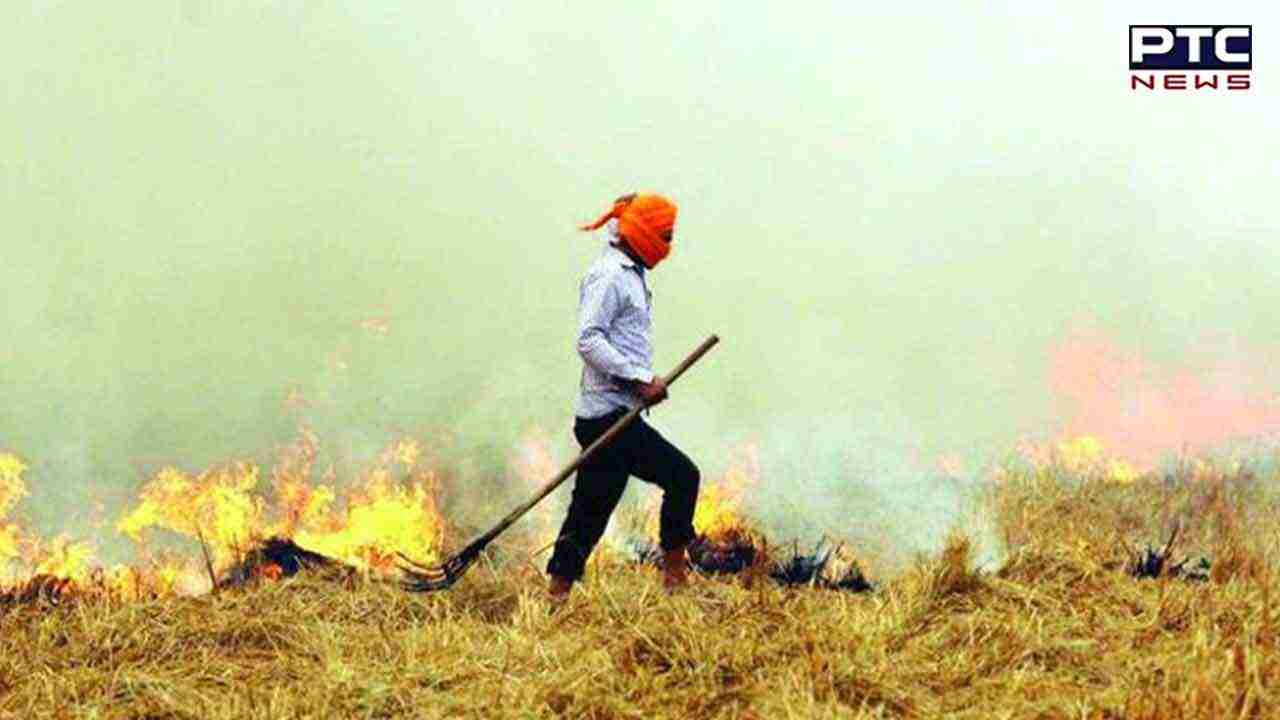

Punjab aims to curb stubble-burning: 22,000 straw management machines planned for 2023 kharif season
Chandigarh, August 13: In a resolute move to combat stubble-burning, the Punjab Government has outlined plans to distribute over 22,000 crop residue management machines with subsidies amounting to Rs 350 crore for the forthcoming 2023 kharif season (August-November), according to a senior official's statement.
Under the paddy straw management initiative, the state's agriculture department targets zero stubble-burning occurrences in seven districts: Gurdaspur, Pathankot, Hoshiarpur, Rupnagar, Mohali, SBS Nagar, and Malerkotla. Additionally, a 50% reduction in stubble fire incidents is anticipated in Patiala, Sangrur, Faridkot, and Muktsar districts, the official mentioned.

In the 2022 kharif season, Punjab achieved a remarkable 30% reduction in stubble-burning incidents, decreasing from 71,304 cases in 2021 to 49,907.
_b06eaedcc09bf4e46addf5bd4106c52a_1280X720.webp)
Director of Punjab Agriculture, Gurwinder Singh, emphasized the Rs 350 crore action plan for paddy straw management, detailing the distribution of approximately 21,000 in-situ management machines and 1,800 ex-situ balers to farmers.
Also Read: Join 'Har Ghar Tiranga': PM Modi calls for patriotic social media movement
A range of machinery, including super seeders, smart seeders, happy seeders, paddy straw choppers, shredders, mulchers, hydraulic reversible mold board ploughs, and zero till drills, will be made available with subsidies to foster straw management.
Individual farmers can access 50% subsidies, while cooperative societies and custom hiring centers are eligible for an 80% subsidy on straw management equipment, officials conveyed.
_8b7b21c2f11bdb90afdf6a736fbb62e9_1280X720.webp)
Since introducing a mechanization promotion scheme for crop residue management in 2018, Punjab has already distributed 1.17 lakh such machines.
Previously, the Centre granted Rs 1,400 crore in the past five years for crop residue management to Punjab. However, this year, the Centre decided to contribute 60%, with Punjab covering the remaining 40% of the Rs 350 crore action plan.
"The Union Government will contribute Rs 210 crore, while the state government will contribute Rs 140 crore," the official revealed.
Punjab's vast paddy area of approximately 31 lakh hectares yields over 200 lakh tonnes of paddy straw annually, of which 120 lakh tonnes is managed through in-situ and ex-situ methods. The burning of paddy straw in Punjab and Haryana contributes to the significant increase in air pollution levels in Delhi and northern regions during October and November.
To accommodate the short window between paddy and Rabi crop wheat planting, farmers often resort to burning their fields to clear the residue quickly. This season, the agriculture department predicts around 10% less paddy straw due to the extensive sowing of the PR-126 variety in response to the July floods.
PR-126, maturing in 93 days post-transplantation, produces less straw than traditional varieties, further contributing to the straw management efforts.
Punjab was severely affected by heavy rainfall from July 9 to 11, resulting in flooded agricultural fields and disruptions to daily life across several areas.
Also Read: Uttarakhand rains: 52 dead, 37 injured as heavy downpour continues to wreak havoc
- With inputs from agencies
